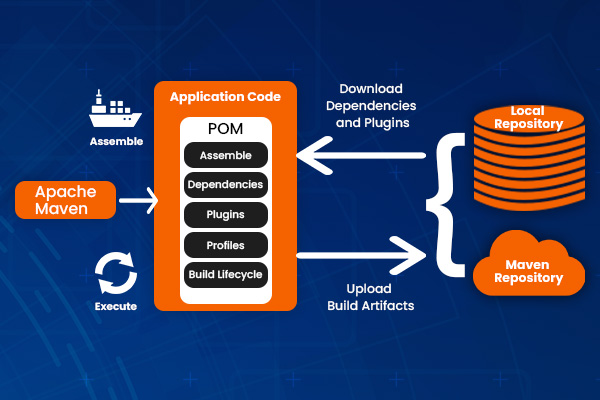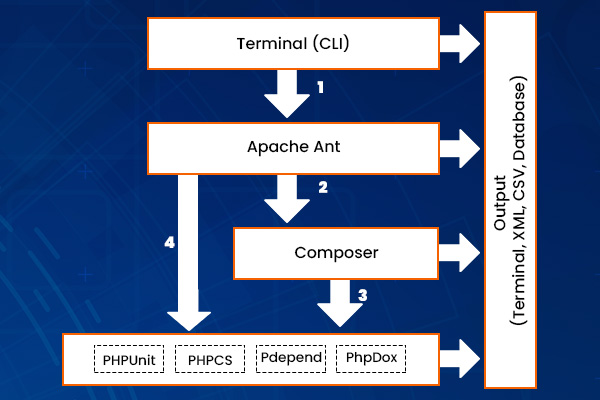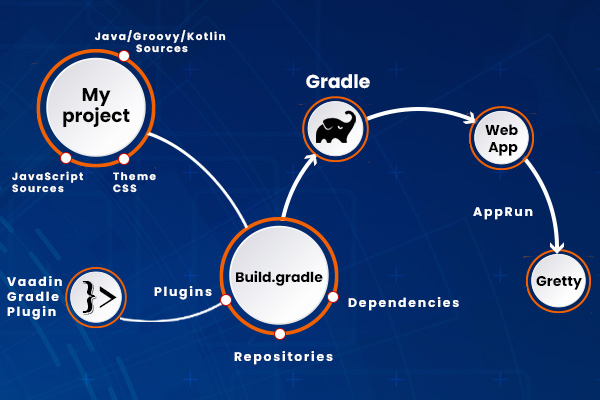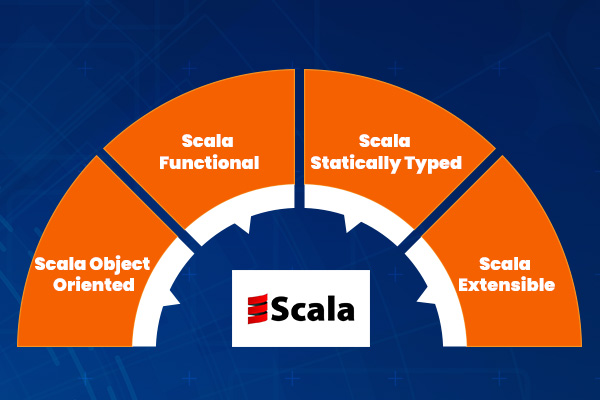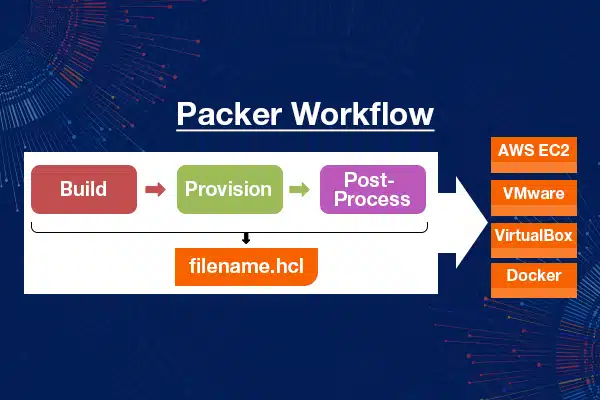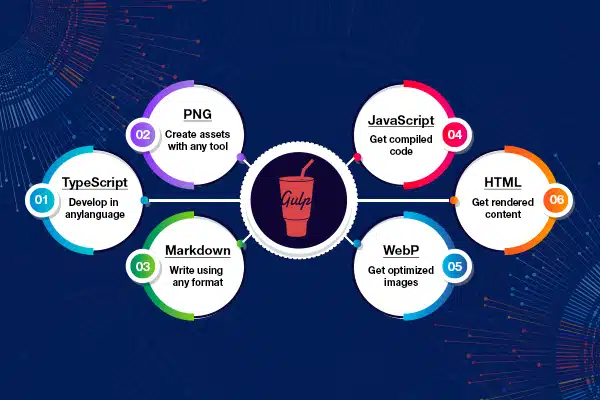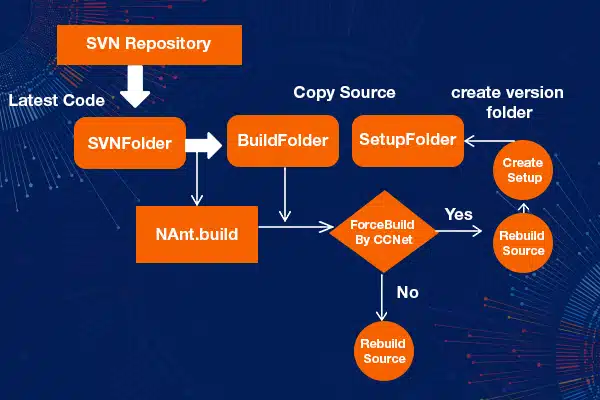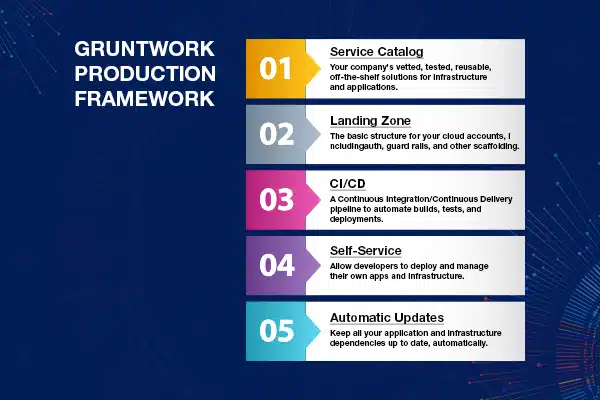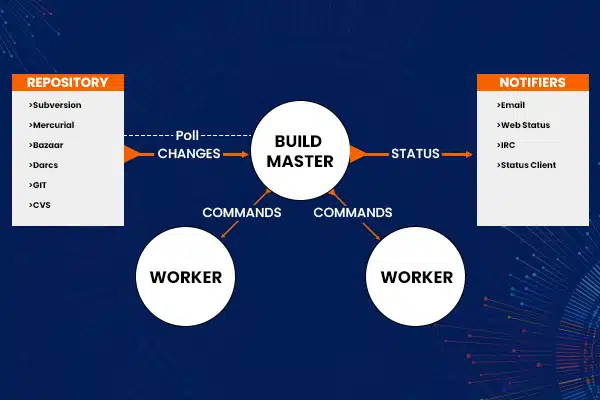From gathering the prerequisites to deploying the build codes into production, everything used to be done manually. Not only were the processes time-consuming but they also introduced several discrepancies. This is where the build tools come into play. These are automation tools that have the ability to automate major tasks of SDLC and reduce the hassles of using library files, jar files, and more.
Top Build Tools
There are several types of build tools that are used for automating the development cycle of different software products.
Apache Maven
Apache Maven is suitable for all types of business and has the ability to offer excellent performance in terms of automating tasks. From project building to reporting, this tool will allow you to perform several tasks and complete the deployment with ease. You can extend the functionalities by including several plug-ins as per the project requirements.
- You can work on multiple projects using Apache Maven.
- You will be able to manage dependency with ease.
- For storing all data and metadata, you can use its vast repository.
- You can control the release management.
- You don’t need any form of configuration for its integration.
Apache Ant
Another outstanding build tool is the Apache Ant. It is specifically used to handle projects that need to be developed in the Java programming language. You will be able to combine dependency management with the build process.
- You don’t need to follow the hardcore coding conventions.
- It features a high level of flexibility.
- You can use its commercial level library functions.
- From compiling to assembling, several built-in functions are there that you can access with ease.
Gradle
With a freemium model, Gradle will offer you a trial period of 30 days. You can easily manage software development projects for mobiles, websites, and even microservices. Being an open-source platform, you will have access to a large community.
- You can easily code in any programming language.
- Deployment can be done to any environment.
- Multi-repo technologies are supported on Gradle.
- Execution options are varied, starting from composite builds to continuous build.
SBT
Scala Oriented Build Tool is a recent player in the market but it has gained a lot of popularity. You can use it for Java, Scala, and many other languages that are used commonly nowadays. Being an open-source platform, you will be able to connect with the community for further help.
- You can integrate IDEs with the SBT tool.
- Several tasks are usage-ready on this application.
- Dependency management is possible.
- You can use it with the GitHub repository.
Packer
Packer is one of the most popular software build tools, acting as an automated image building software. It is mainly used in projects where software build, test suites, and code deployment must be done comprehensively at different environments but with a single source platform. Furthermore, the availability of plugins allows extension of Packer’s functionality.
- No core code modification is needed for third-party extensions
- Allows image management to be integrated with existing workflows
- Helps in making images compliant
Gulp
Gulp is a popular choice for open-source projects, with a free trial version available for everyone. It is an ideal choice for projects based on JavaScript, TypeScript, HTML, WebP, and Markdown.
- Deploys codes and libraries after a successful build
- Unlimited access to a more extensive database
- Allows reusable codes to cut down time and effort investment
NAnt
NAnt is one of the most chosen build automation tools to handle complicated codes and meet all the project requirements without any hassle. It works seamlessly with codebases written in .NET language. Thanks to the advanced features, one can easily access the local environment to develop and test the codes before delivering them to the deployment server.
- Intuitive and easy-to-use interface for code compilation and execution
- Automatically notifies users about failed code builds
- Compiles different files and source codes in different assemblies
Grunt
Grunt is an all-rounder build tool used to develop, test, and lint codes for different types of projects. Additionally, it can be integrated with other third-party applications, thanks to the availability of numerous plugins for better SDLC monitoring. The automated abilities make building and deploying codes to the concerned server hassle-free.
- Allows the creation of multi-stage build designs
- Comes with an automated task runner to handle mundane workflows
- Releases codes to different environments simultaneously
BuildMaster
BuildMaster is another popular CI/CD tool that automates building and testing processes to maximize application efficiency and outputs. Developers can build unit test suites for automatic execution before deploying the software to the running environment or server.
- It can be used to develop codes using different languages, like Java and PHP.
- Deploys the software on different containers, including Kubernetes, Docker, and other virtual machines
- Helps in creating deployment packages for software release
Benefits of using automated build tools for software development
Following are some advantages every developer or tester can enjoy with the build automation tools.
- Automating build, test, and deployment cuts off the time consumed in traditional SDLC methods.
- These tools accelerate the development and deployment processes without risking performance and deliverability.
- Also, the dependencies on key team members can be eliminated easily since the tools automate different phases of the build process.
- Checking the history logs of every commit, pull and push request, and build version is much easier with the automated build tools.
Conclusion
Most build tools integrated with SDLC projects are open-source, allowing software developers and testers more flexibility and scalability. The choice of the tool will depend on project requirements, supported integration with repository and container applications, and time. For instance Apache Maven, Apache Ant, and Gradle are most suited to handle complicated build and testing suites. Similarly, Packer is a CI and CD tool for automating the entire SDLC process in minutes.

